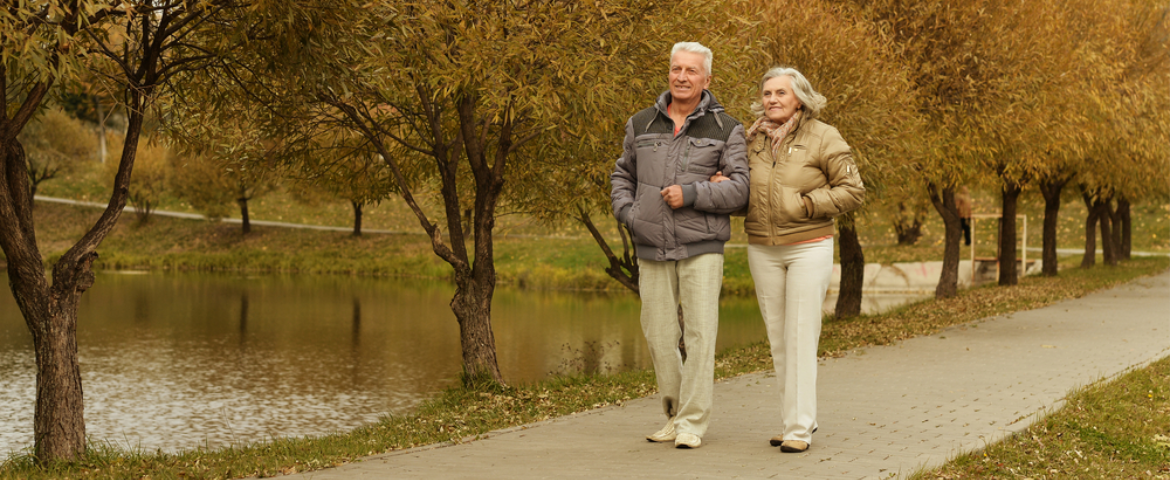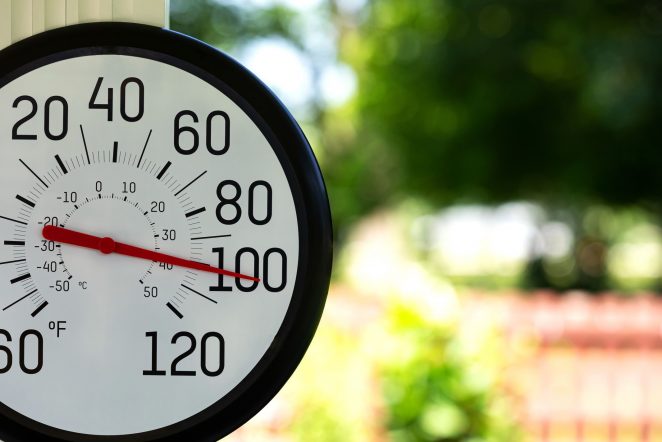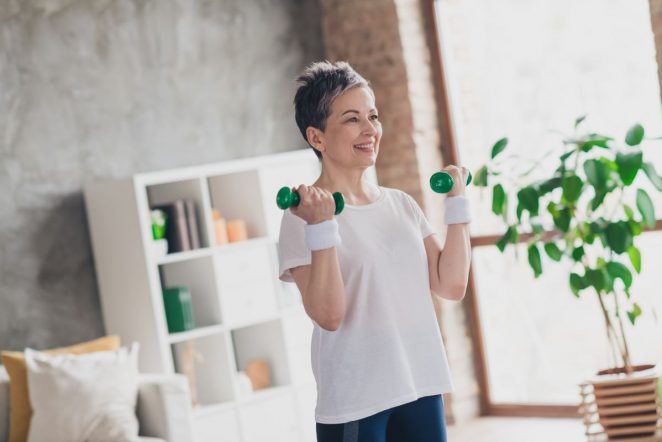You probably remember being told to drink milk as a kid so you’d grow up to have strong bones. That’s because milk contains a high concentration of calcium, which is one of the most essential building blocks for bone. Even after you stop growing taller, your bones continue to gain density up until about age 30, when humans reach peak bone density. As you age, your bone density decreases, making them break more easily and repair themselves more slowly.
Roughly 54% of Americans are affected by a musculoskeletal (bone and joint) condition and, as the Baby Boomer generation ages, the rate and cost of bone and joint-related conditions continue to rise. So even if you drank plenty of milk as a child, you still need to pay attention to your bone and joint health well after childhood.
Bone and Joint Health Awareness Week is Oct. 12 through Oct. 20. And while you probably don’t need to commit those dates to memory, you should remember these five tips for keeping your bones and joints healthy as you age.
1. Maintain a healthy weight.
We know it’s no fun to think about your weight, but excess weight can mean excess stress for your bones and joints as you age. Talk to your doctor about what a healthy weight looks like for your body and come up with a plan to either reach that ideal weight or do your best to maintain it.
2. Get the right vitamins.
Calcium and vitamin D are essential for healthy bones and joints. For adults, the recommendation is 1,000 milligrams (mg) of calcium a day. The recommendation increases to 1,200 mg a day for women after age 50 and for men after 70. Dairy products and dark leafy greens are good sources of calcium in your diet, but don’t hesitate to ask your doctor about supplements if you find it difficult to get enough calcium through diet alone. And while you’re at it, don’t forget about vitamin D, which helps your body absorb calcium. Aim for 600 international units (IUs) of vitamin D a day for adults 70 and under, and 800 IUs for adults over 70.
3. Get moving.
Staying active is especially important for bone health. Body movement actually slows down bone loss, in addition to increasing joint flexibility and muscle strength. Plus, staying active keeps your weight in check, which helps your joints. If you find yourself dreading exercise because of achy joints, previous injuries or just plain old age, try low-impact exercises. Low-impact exercises like walking or yoga keep you active without putting your stress on your joints like running or other high-impact activities do. Make sure to check out our recommendations for low-impact exercises that have a huge impact on your health.
4. Pump it up.
You don’t have to be a body builder to lift weights. Weight training is a fantastic way to keep your bones and joints in tip-top shape. Muscles support our bones and joints, so it makes sense that stronger muscles equal more support. Focus on increasing repetitions with lower weights to prevent injury while still building those bone-supporting muscles. You can even seek out trainers who specialize in older adult clients who can guide you through exercises designed for bone and joint health.
5. Stop smoking.
Smoking is bad for your bone health. Smoking is linked to a loss of bone mineral density, increasing your risk for osteoporosis and fractures. So if you needed one more reason to kick the habit, this is it. Not only does smoking reduce blood supply to bones, it also lowers your body’s ability to absorb calcium—so even if you’re eating those leafy greens you’re still losing out on calcium if you smoke. Ask your health insurance company if they offer any smoking cessation resources, as many do and will help you kick the habit once and for all. And don’t forget to read our tips for quitting smoking.
Follow these five tips during Bone and Joint Health Awareness Week—and all year long—to help keep your body healthy as you age.


